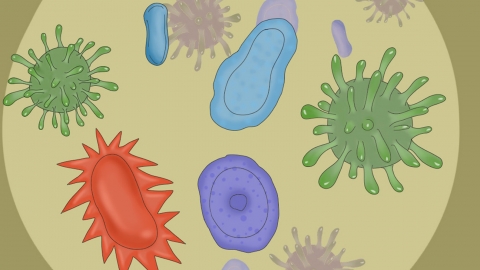Why do viruses have an incubation period?
Viruses have an incubation period because, after entering the human body, they require time to establish colonization, replicate, evade immune system detection, and accumulate a sufficient quantity to spread to target organs. Only after completing these processes do clinical symptoms appear. The length of the incubation period varies depending on the type of virus and the host's immune status. If you experience any discomfort after exposure to a virus, it is recommended to seek medical attention promptly.

After entering the body, viruses must first attach to the surface of host cells and invade them, then use the cell's resources to replicate in large numbers. This replication process takes time. Symptoms only occur when the viral load reaches a threshold high enough to damage cells and trigger inflammation; small amounts of virus cannot directly cause disease.
Meanwhile, the human immune system actively recognizes and eliminates viruses. In response, viruses may evade immune attacks by disguising themselves or suppressing immune responses, thereby buying time for their own replication and spread. If the virus needs to reach specific target organs, it must also cross tissue barriers via routes such as the bloodstream or lymphatic system. These combined processes constitute the incubation period.
To protect yourself, maintain good hygiene habits, avoid crowded places, exercise regularly to boost immunity, and consume foods rich in vitamins to help your body resist viral invasion.










